From the Chicago Reader (September 1, 1995). — J.R.
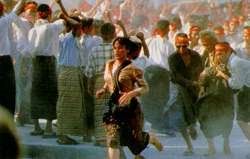
Beyond Rangoon
** (Worth seeing)
Directed by John Boorman
Written by Alex Lasker and Bill Rubenstein
With Patricia Arquette, U Aung Ko, Frances McDormand, Spalding Gray, Tiara Jacquelina, and Victor Slezak.
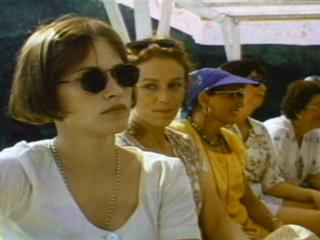
Reviewing Salvador Dali’s autobiography half a century ago, George Orwell wrote that Dali “grew up in the corrupt world of the 1920s, when sophistication was immensely widespread and every European capital swarmed with aristocrats and rentiers who had given up sport and politics and taken to patronizing the arts. If you threw dead donkeys at people, they threw money back.” Offended by the sort of sophistication that he associated with mindless tolerance, Orwell recorded his own puritanical outrage at the brutal shenanigans of Dali and his apologists: “It will be seen that what the defenders of Dali are claiming is a kind of benefit of clergy. The artist is to be exempt from the moral laws that are binding on ordinary people. Just pronounce the magic word ‘art’ and everything is OK. Rotting corpses with snails crawling over them are OK; kicking little girls on the head is OK; even a film like L’age d’or is OK.”
Unfortunately, Orwell hadn’t seen Buñuel’s 1930 masterpiece and had been misinformed about it; it’s subsequently been demonstrated that, contrary to popular belief, Dali had little to do with it. Read more
From the Chicago Reader (May 6, 1988). — J.R.
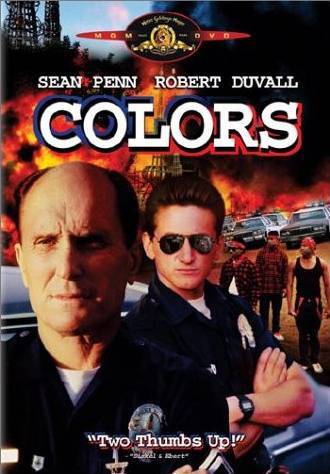
COLORS
** (Worth seeing)
Directed by Dennis Hopper
Written by Michael Schiffer and Richard Dilello
With Sean Penn, Robert Duvall, Maria Conchita Alonso, Randy Brooks, Grand Bush, Don Cheadle, Glenn Plummer, and Rudy Ramos.
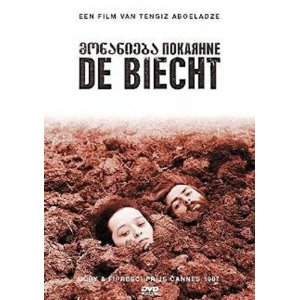
REPENTANCE
*** (A must-see)
Directed by Tengiz Abuladze
Written by Nana Djanelidze, Tengiz Abuladze, and Rezo Kveselava
With Avtandil Makharadze, Zeinab Botsvadze, Ketevan Abuladze, Edisher Giorgobiani, Kakhi Kavsadze, Iya Ninidze, and Merab Ninidze.

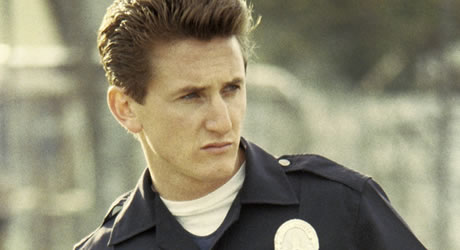
For several weeks now, I’ve been trying to get a fix on what irritates me so much about Colors. Seeing it again recently, and then seeing Repentance for the first time the next day, a few hours before I started this review, gave me the beginning of an answer, and it isn’t a pretty one. If these films can be said to represent what “social criticism” currently means in the respective cultures of the U.S. and the Soviet Union — and, after a certain amount of boiling and scraping, I think that they can — then it seems to me we’re in trouble.
It’s been estimated that over 60 million Russians have already seen Repentance, the most prominent of all the belated, post-glasnost Soviet releases — scripted in 1981-82, filmed in 1984, and apparently shelved for only two years prior to the thaw. Read more
I no longer recall where this was written for and/or published, but I’m pretty sure it was written in 2004. Eight years later, having just seen Far from Afghanistan at the Toronto film Festival — a film that John Gianvito organized, shot a portion of, and edited, playing a role somewhat comparable to that of Chris Marker on Far from Vietnam — I’m reminded yet again of how irreplaceable and precious John is to to the conscience and, yes, endurance of American cinema. — J.R.
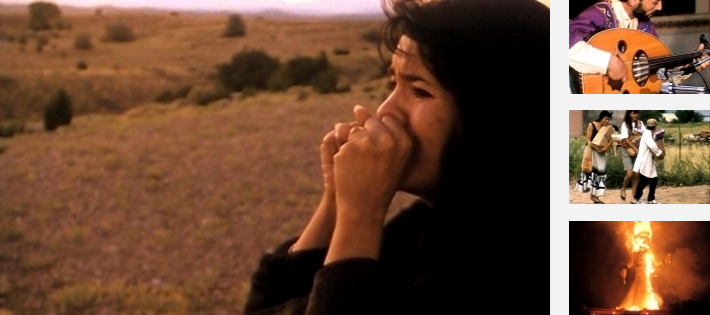
A rare act of bearing witness, The Mad Songs of Fernanda Hussein is the only film I know that gives ample voice to the rage and despair felt by many Americans during the Gulf war —- a loose, disparate, disorganized, and virtually invisible group of individuals in which I’d include myself. Many of us are experiencing comparable emotions at the moment, after September 11 and the terrifying fantasies of consensus that have followed, most of them involving present and future American invasions and conquests.
All this gives John Gianvito’s 168-minute feature an urgency that he couldn’t have anticipated when he finished the film early last year. It also makes me feel grateful personally, in a way that goes beyond critical approval, if only because it proves to me and several others that we aren’t alone. Read more







